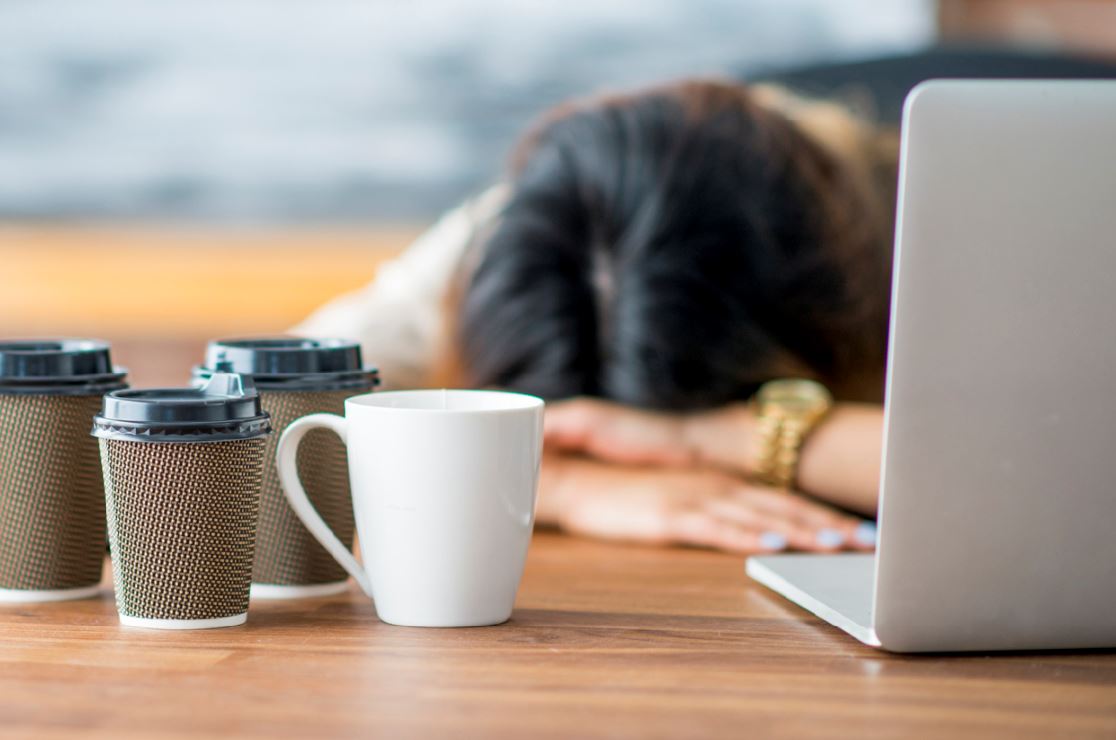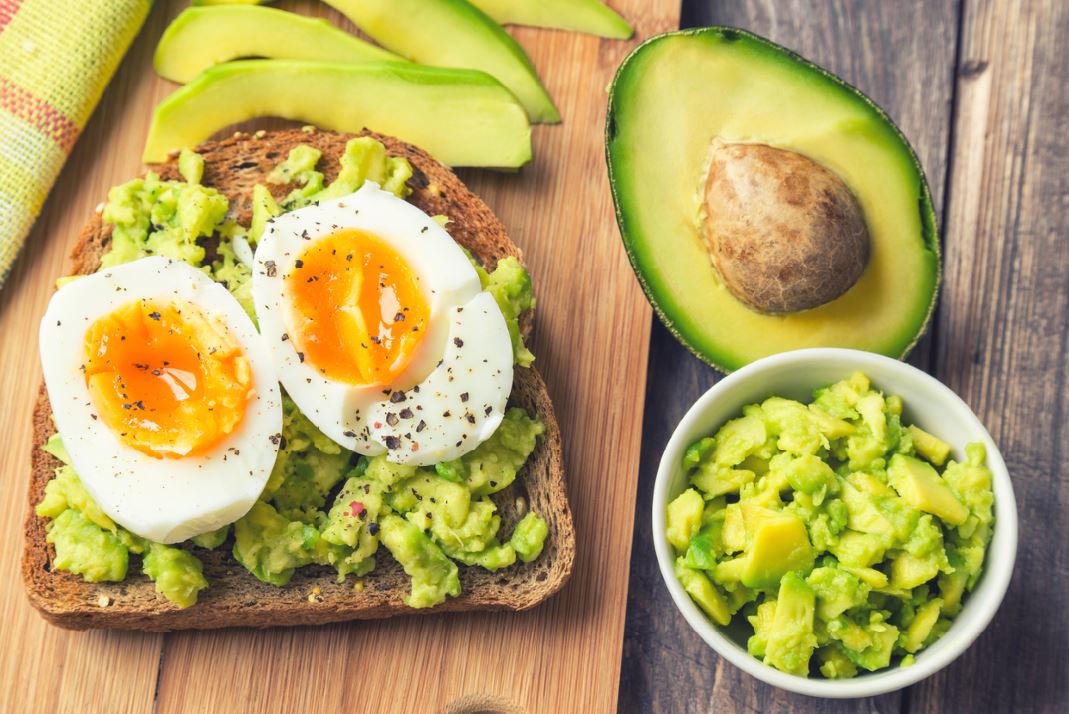Is your productivity lacking now that you’re back to working from home? Nutritional therapist Clarissa Lenherr reveals 5 top tips to help you stay focused
Feeling a little loco now that your back to working from home again? Fed up with spending another Groundhog Day at home?
On Tuesday evening, Boris Johnson addressed the nation, warning us against the rising cases of coronavirus.
These measures included office staff once again working from home
The Prime Minister set out a new and updated package of measures for England, that he said could continue well beyond Christmas and new year unless there was progress in controlling the spread of the virus.
These measures included office staff once again working from home, the wider use of face masks and a 10pm curfew on pubs and restaurants, as well as bigger fines for those who flout these rules.
Not only that, Johnson also indicated that tougher restrictions could be imposed if this new series of measures fail to lessen the Covid-19 cases – this has people concerned that we are facing lockdown number two.

For those who have been working from home (WFH) since the initial virus breakout, the novelty of home comforts whilst working has already begun to wear off, and now many more are having to work from home since returning to the office.
Many are noticing a dip in their energy levels and motivation, which in turn is negatively impacting their work productivity – do you agree?
To lend a helping hand, Healthista caught up with Clarissa Lenherr, a Nutritional Therapist from personalised healthcare service bioniq.
Lenherr shares her five top tips on how to help you breathe some life back into your day and keep you physically and mentally bright-eyed.
5 tips to increase your productivity when WFH:
#1 Stick to a daily routine
It can be easy to feel a loss of control when you are in lockdown or self isolating. To counteract this, try implementing a new routine that suits your environment and way of working.
During the working week, aim to wake up at the same time every day, get dressed, keep your mealtimes consistent and commit to getting out of the house at least once a day.
try implementing a new routine that suits your environment
On the weekends, make sure to differentiate from your weekday habits so that you break up the week and create recovery time.
#2 Don’t over-do the caffeine
It can be easy to reach for another cup of coffee when you are feeling low in energy. However, consuming too much caffeine can disrupt our natural energy cycles and potentially leave us feeling even more fatigued.
Try to stick to under the recommended 400mg of caffeine. That’s about four espresso shots or eight cups of medium stewed black or green tea.
It’s also worth noting that many fizzy drinks, dark chocolate and energy drinks contain caffeine..

#3 Take advantage of your circadian rhythm
Our circadian rhythm is the cycle that governs our wake and sleep cycles and contributes to our energy levels, mood and wellbeing.
When we commute into work, we have the opportunity to expose our eyes into direct light. This direct light triggers our circadian rhythm, prompting cortisol to be released which gives us energy, particularly in the morning.
get at least ten minutes of fresh air and natural light in the morning
Take advantage of this natural source of energy by getting at least ten minutes of fresh air and natural light in the morning, and once again in the afternoon for an energising pick me up.
Read More: 3 sleep tips this TV doctor wants you to try tonight
#4 Aim to eat well balanced meals, especially for breakfast
Eating well-balanced meals composed of protein, complex carbohydrates, good quality fats and lots of fruit and veg will provide you with a slow and consistent release of energy throughout the day.
This stable energy release can help to boost your mood and keep you energised and productive. This in turn will positively impact your work.
Aim for breakfasts such as yogurt topped with oats or nuts and berries, lunches such as hearty salads with chicken and quinoa and dinners such as roasted salmon served with dark green veggies, or butternut squash and olive oil.

#5 Take a supplement to avoid a nutritional deficiency
If you have noticed that your energy, mood or concentration has been lagging for a while, it may be worth ruling out nutritional deficiencies, and potentially considering taking a supplement.
Here are a few key nutrients you may wish to consider:
- Vitamin D – Low Vitamin D levels can lead to low energy levels. Vitamin D acts as a neurosteroid and enhances the nervous system, which can contribute to mood, memory, attention and working capacity. Those at increased risk of low vitamin D include individuals who do not get sun exposure regularly or follow diets low in animal food sources, such as eggs, fatty fish and dairy.
Low Vitamin D levels can lead to low energy levels
- Magnesium – The mineral magnesium contributes to a reduction in tiredness and fatigue. But its most well-known function is fighting stress as it decreases our sensitivity to adverse external influences and contributes to muscle relaxation.
Read More: 7 signs of magnesium deficiency that could be ruining your body goals
- Zinc – Zinc is a trace mineral that contributes to cognitive function, immune system health and carbohydrate metabolism, which helps to convert our food into energy. Zinc is found in foods such as red meat, shellfish and dairy, which is why some vegans or vegetarians may be deficient.
If you’re concerned that you’re not getting enough Vitamin D, Magnesium or Zinc in your diet, then try supplementing with bioniq IMMUNE, a micronutrient mixture containing all three of these key nutrients to not only support the immune system, but also energy levels and cognitive function.

Clarissa Lenherr has had a successful career as a Nutritional Therapist, since graduating from The College of Naturopathic Medicine.
Since then, Clarissa is an active member of BANT (The British Association of Nutritional Therapists) and CNHC Complementary and Natural Health Care Council), alongside practising personalised nutrition, advocating the ‘no one size fits all’ approach.
Clarissa now works as a registered Nutritional Therapist for bioniq.
Follow Clarissa on Instagram @clarissalenherrnutrition
Relevant Healthista Content:
Fitness sensation Krissy Cela reveals 10 tips on getting back into the gym post lockdown
10 ways to boost sexual confidence post-lockdown
11 simple ways to de-stress during self isolation
Self-isolation – 7 steps to make your home a feel good space
Healthista Content you may also like:
Need an energy boost? Start your day with one of these 5 easy recipes
Feeling tired all the time? This one minute energy boost will do the trick
